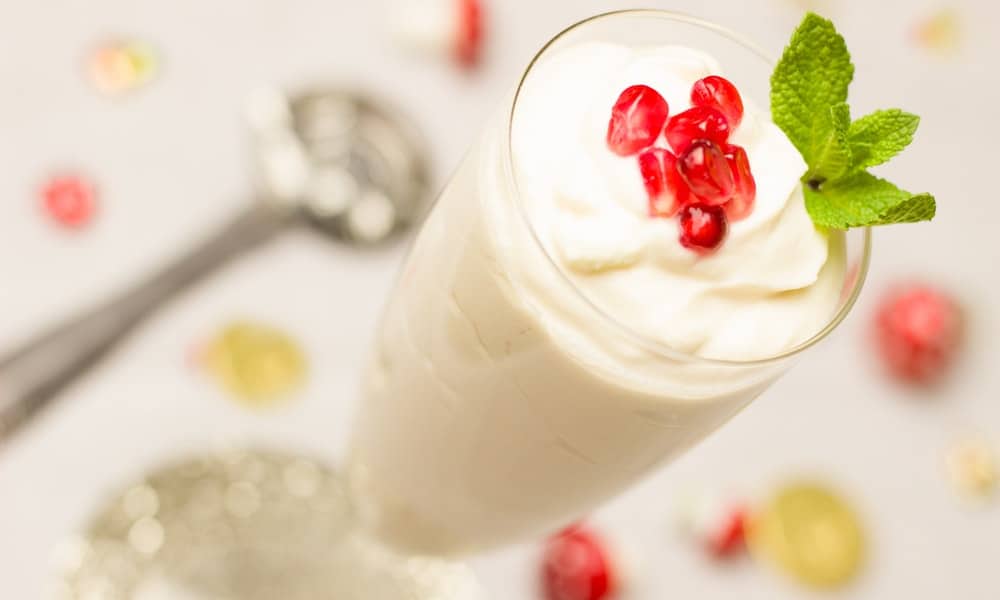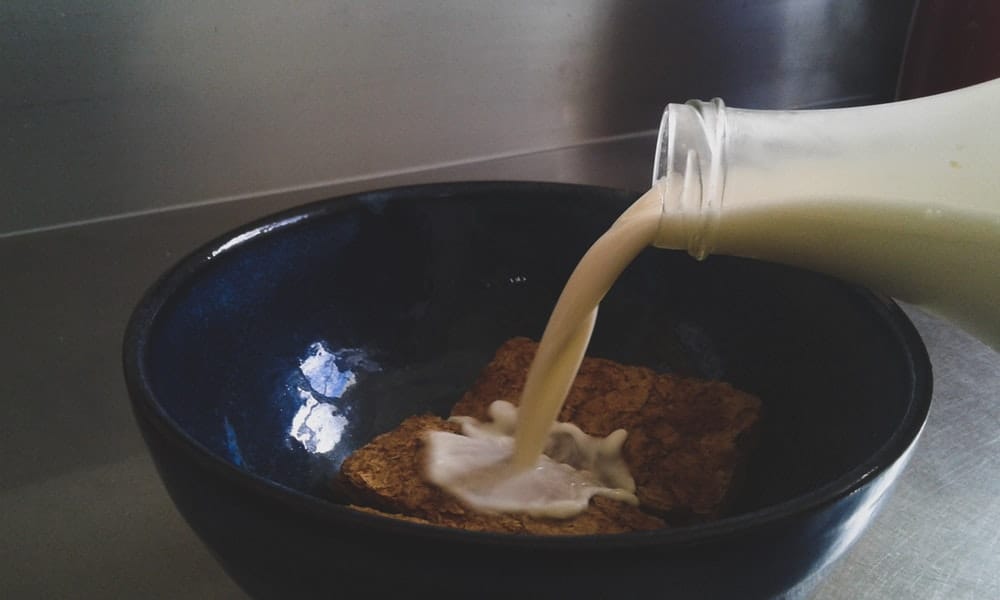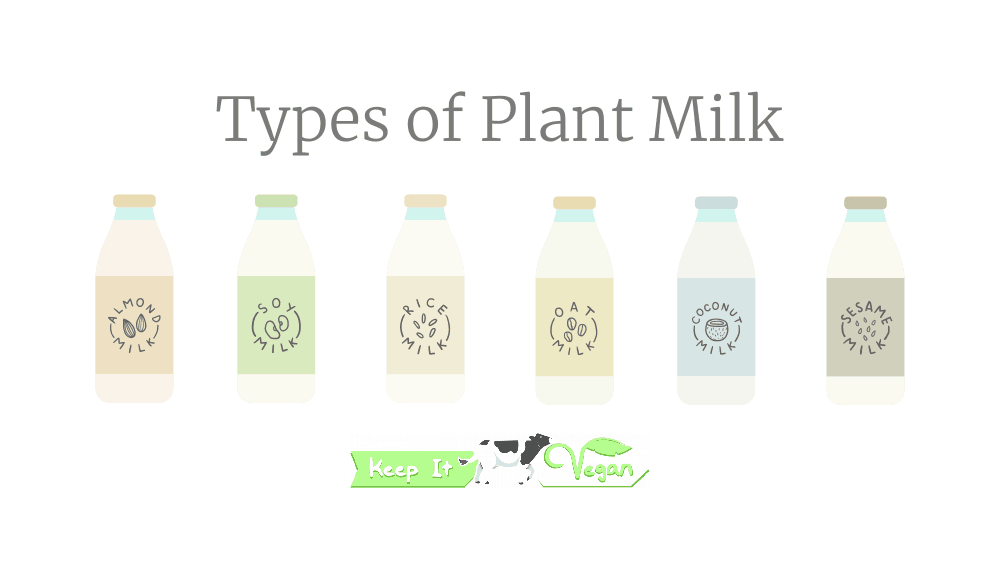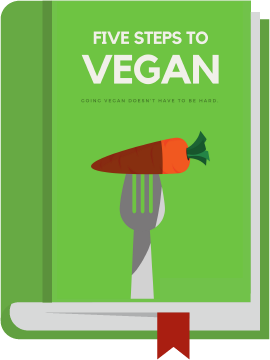Picking the Best Plant Milk | Dairy Alternatives
Giving up dairy is difficult for a lot of people. We are so used to cooking with it and buying food items that contain it.
That morning donut of yours? It's got milk. Your coffee creamer? No surprise, milk. Cheese on your pizza? Made from milk. The desert you have after you finish that pizza? Yup, it uses milk too. Late night glass of milk? Well...You get the point.
So how's it even possible to drop milk? Do I have to sacrifice everything that tastes good in my life? NOPE! There has been so much innovation in vegan cooking and you'll be able to enjoy all of your favorite foods with just a little bit of veganization.
Luckily, in this day and age, there are so many unique plant-based milk options to choose from. Whether you live in a small town in the Southern United States, the very vegan-friendly California, or a newly popular vegan hotspot from around the world, - such as the UK! - your local grocery store has to have some sort of plant milk selection.
From almond milk to rice milk to chocolate soy milk, there is a flavor out there for everyone.
Think of this guide as your ultimate introduction to vegan / plant-based milk.
Enjoy and don't forget to leave a comment below if you have a question!
Why Plant Milk?

Who needs milk!
There are many reasons to ditch dairy these days, and even more options for alternative milks.
For some, the reasons to say goodbye to milk include allergies, weight loss goals, environmental concerns, and of course vegan ethical reasons.
Whatever your reason, the abundance of options in the growing plant-milk industry offers you a lot more control on things like nutrition while also giving you even greater varieties of taste and textures, and that is pretty exciting.
Together, let’s explore a few different plant milks and their benefits to help you make best plant milk choice for your needs and preferences. I hope you’ll see that shutting the window to dairy in your diet opens many doors to many better things.
Health Benefits of Plant Milk
Dairy, whether from a cow, a sheep, a goat, or any other mammal, has gotten a lot negative press lately, largely around health risks caused by ingesting dairy.
A large percentage of the population turns out to be naturally lactose intolerant, a condition that usually ranges from upset stomach from even trace amounts of dairy in foods, to widespread skin and digestive troubles.
Dairy has also been linked to diabetes, heart disease, cancer, and other major diseases.
But don’t we need dairy for the calcium?

As it turns out, dairy has been shown to do the opposite of supply us with calcium for healthy bones. Turns out, dairy removes more calcium from the bones of those who ingest it than it delivers, which has led to dairy being largely fortified with calcium and other minerals-- and fortified, supplemented calcium is associated with other dangers.
If you are interested in learning more about good and bad sources of calcium and other nutrients check out these resources.
Dairy and Hormones
Milk is one of nature’s wonders.
Mammals produce all the food, nutrients, fat and calories needed to make their babies grow big and strong very fast, helping them become independent and capable of producing their own children.
For cows, that maturing process means going from house-pet-sized to multi-ton in a matter of months.
A major part of that rapid development is the milk that baby drinks, and more specifically the hormones in the milk-- the very same milk that we bottle for human consumption.
Estrogen, and other growth promoting hormones in all mammal milk, especially cow milk, is able to be absorbed by humans, causing a massive growth of cells from fat, to growth, to insulin, and even cancer.
Different Plant Milks

If it is a light colored plant-food, chances are there is a plant milk made out of it!
These days, most grocery stores, including Target, Aldi’s, and even corner stores, carry a range of plant milks, if not at least soy milk and almond milk.
These plant milks are completely dairy free, and tend to have longer shelf lives, lower calories, and lower fat contents than their animal-product counterparts.
If you are interested in making your own plant milk, this great formula shows you how to hack the secret behind plant milk to make almost any nut or seed into milk for you and your family at home.
Store-bought plant milks usually have sweeteners and preservatives, so by making your own, you’ll have ultimate control over your health goals, and save a little money in the process!
List of Plant Milks:
Rice Milk
A sweet, light, thin milk, great for cooling down a hot beverage, or cooking where a little wetness or sweetness is needed, but not much extra fat. Rice milk was one of the first commercially available milks, and is an economical options for home milk-makers!
Coconut Milk
available in both milk-style cartons, with the pourable consistency we associate with most plant milks, or in its delicious creamy canned form, which is a baker’s best friend. Usually, the coconut flavor remains strong in either version, and the fat content makes things like cakes moist and indulgent!
Soy Milk
the most widely available plant milk, largely due to its emergence as a global staple crop, soy milk has a high protein content, although it is usually fortified. When looking for a latte, look no further than soy milk, your local barista will tell you many other plant milks just won’t foam.
Pea Milk
pea milk is the latest contender to the plant milk arena, with brands like Ripple leading the way. Pea milk is formulated to have more calcium, protein, iron, and vitamin D with less sugar and fat than dairy (and, practically any other plant milk too).
Additionally, it’s thick, creamy and delicious. Use pea milk where milk is a major component, as with cereal or hot chocolate.
Cashew Milk
a creamy and satisfying milk, but doesn’t particularly taste like cashews. Cashew milk makes particularly good ice cream, such as the cashew based So Delicious, and is also a great base for vegan cheddar.
Almond Milk
unlike cashew milk, the flavor of the almond lingers in almond milk, and you’ll even find this milk in places like Dunkin’ Donuts. The nutrient density and relative low caloric content of Almond milk have helped it grow into the leading dairy alternative, even surpassing soy milk a handful of years ago.
Hemp Milk
thick and creamy, with a bold amount of natural protein and Omega 3s, hemp milk is a nutritional powerhouse that far outshines dairy. Hemp milk, sweetened and unfiltered, has the ability to make a truly satisfying creamer for coffee, that won’t separate as much as most plant milks and will get your coffee from brown to tan in no time.
Flax Milk
flax is the magic bullet of the health food world, as a complete protein, an ancient plant, rich in vital nutrients, so much so that it is even in the daily must have foods list by Dr. Michael Greger. Flax milk is a great way to get your daily flax quota, while enjoying one of the creamier plant milks around.
Other plant milks to try:
Quinoa Milk, Oat Milk, and Banana milk
Brand names and flavors:
What to look for
Plant milk comes in a few different package styles, so you are likely to find plant milks in one or several of a few places in your local grocer or convenience store.
Not all plant milks need to be refrigerated, you may also find them shelved in 4-quart containers similar to vegetable broth, in cans, or creamer bottles.
Creamer bottles, packets, and cups you may already be familiar with, such as International Delight, even though advertised as dairy-free, still contain the milk-derived ingredient sodium caseinate.
However, never fear for those looking to replace creamers, or half and half, in their coffee this helpful guide to vegan creamers will show you the many vegan options available.
Plant milks tend to have as many options as dairy milk, and while dairy milks get sorted by fat content (whole, skim, 2%, half and half etc), plant milks usually get sorted by flavor or sugar content like original, original unsweetened, vanilla, vanilla unsweetened, chocolate etc.
It is also common to find a milk advertised as +Protein, which is usually an indication that a protein supplement, like pea or soy protein, has been added.
Most store bought milks contain a thickening agent and preservative known as carrageenan, a quite misunderstood type of seaweed that contains natural anti-viral properties, and other excellent culinary and health benefits.
Using at Home: A Chef’s guide
With so many options, how do you know which plant milk is the plant milk for you? Even more, which non-vegan recipes can be veganized with which go-to plant source?
Swapping out plant versions of dairy foods can seem like a daunting task, but below is a cheat sheet for easy and fast substitutions:
Dairy Foods | Substitution | ||
Coffee | Store bought creamer, or pea milk, quinoa milk | ||
Espresso Drinks | Soy milk or pea milk | ||
Cereal | Pea milk, rice milk | ||
Cookies or bread | Rice milk, oat milk, quinoa milk | ||
Cake or pastry | Coconut milk (in a can) | ||
Ice cream | Frozen bananas, coconut milk, store bought cashew milk ice cream | ||
Cream soups | Coconut milk, almond milk, hemp milk, flax milk | ||
Cheese | |||
Cream sauces | Coconut or soy milk, or try a Victoria Vegan Alfredo sauce | ||
Gravy | Almond milk, soy milk, cashew milk | ||
Smoothies | Any plant milk! | ||
Hi-protein | Soy milk, pea milk, fortified other milks | ||
Hi-fat | Coconut milk, hemp milk | ||
Low-carb | Almond milk unsweetened, flax milk unsweetened | ||
Closing Notes: Become a mad scientist!
There’s a wide world of options out in the world of plant milks; creamy, smooth, sweet, and plain.
Experiment with different combinations, including the pre-mixed combinations of things like almond and coconut also available.
The right plant milk to tickle your taste buds is out there, without the animal cruelty that goes along with other milk options!
Have fun and stay curious!

Leave a Comment